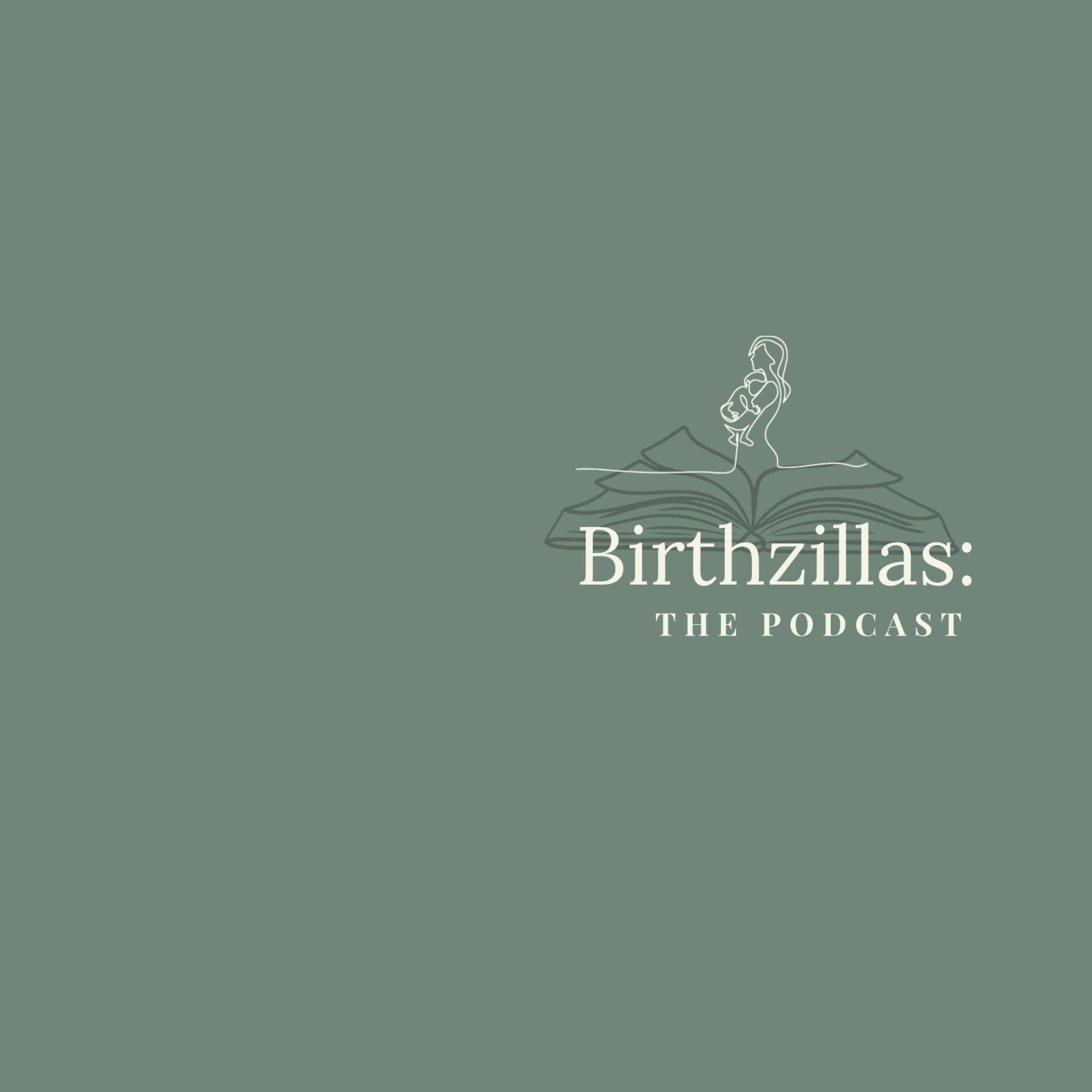
The Friday Brief with Phoenix Ricks
The Friday Brief is a calm news podcast by Girl Friday, a boutique global affairs firm in Washington, D.C. We believe awareness impels action for a world of good.
The Friday Brief with Phoenix Ricks
A Chilly Reception
Use Left/Right to seek, Home/End to jump to start or end. Hold shift to jump forward or backward.
Canada is monitoring China's research vessel in Arctic waters, not far from Alaska's coast. What is China doing in the Arctic? Is the U.S. also monitoring this vessel? Plus: The U.S.-brokered minerals-for-security deal between Congo and Rwanda has raised questions. Namely: who is funding and executing the security portion of the deal? We're also covering the House being let out for an early recess to, perhaps, avoid more questions about Jeffrey Epstein's files. All in under 10 minutes!
Be sure to follow us on Instagram @thefridaybrief and sign up for The Friday Brief newsletter on thefridaybrief.com.
Welcome to The Friday Brief, a news podcast by Girl Friday. I’m Phoenix Ricks, the CEO of Girl Friday and your host. This is your brief for July 23, 2025.
The Conversation reported on a minerals deal I’ve been tracking. The U.S. initiated a peace deal between the Democratic Republic of the Congo and Rwanda, forcing the two nations into an agreement that exchanges minerals for the potential of peace and security. The peace deal was signed in June, and the stated goal is a commendable one: to end 30 years of violence between the Democratic Republic of the Congo and Rwanda. And it seems like creating a regional economic framework would be a good thing, right? But, who benefits here? So, we know this would make Rwanda and Congo work together, but there’s another player: the United States. Under the terms of this deal, the U.S. government and American investors would also be part of “transparent, formalized end-to-end mineral chains.” We need the mineral resources in Congo, but they wouldn’t need our peace deals or security if not for three decades of conflict.
This is why, when analyzing global conflicts, I always ask, who is benefiting from this? Conflicts are a bit like the Wizard of Oz; you have to peek behind the curtain to know what’s going on. On the surface, we have global powers stepping in to say that the lingering violence is causing great harm in Congo. This is true. But under the surface, we also know that Congo has enough mineral resources to easily be one of the wealthiest nations in the world. They have the minerals needed to power almost all of our modern technologies, like AI. Yet it's now one of the five poorest countries, due to nonstop conflicts over these resources and remnants of violence from previous conflicts, like the genocide in neighboring Rwanda. So Congo is between a rock and a hard place. How the country reached this dire point, though, I would argue, deserves further analysis.
Now, to alleviate poverty and end violence today, U.S. investment does seem to be a strategic and even necessary choice at this point. But on the flip side, the peace deal’s security promises are, as The Conversation says, “vague.” There will be a joint oversight committee, with representatives from the U.S., the African Union, and Qatar. That committee will field complaints between the Congo and Rwanda. But wait, what about the security? Who is stepping in to stop massacres? Will the U.S. military intervene if the situation escalates again between the two nations? Will private military contractors be deployed for those purposes? What about internal security situations, with battles between warring militias? Remember, more than 100 armed groups are swarming around Congo, causing chaos over these lucrative resources.
And if you’re thinking, well, their government should have protected their people and resources from all of this violence, I want you to visualize how large Congo is compared to other nations. If you’re an American, like me, chances are your history classes focused mainly on the U.S. and Europe, with a sprinkling of other nations. So, let’s take Europe as an example here. You can easily fit much of Western Europe inside of Congo’s borders, maybe even with a little room to spare. It's that big. So, just imagine the fifth poorest country in the entire world trying to contain violence and end poverty over a stretch of land the size of Western Europe. Given all of that, it isn’t unsurprising that the answer to the peace deal’s security question is still unclear.
That seems to be a common occurrence in Africa now. The Conversation’s article notes that “resource bartering in Africa has eroded the sovereignty and bargaining power of mineral-rich nations such as the DRC [Congo] and Angola. Further, resources-for-security deals are less transparent and more complicated than prior resource bartering agreements.” Rwanda has fewer mineral resources than Congo, but it's still a key player, boasting the world’s third-largest supply of tantalum, which is key in aerospace and medical technologies. So, again, I would ask: who benefits from these mineral-rich nations engaging in long-term conflicts that necessitate third-party minerals for security deals?
Now, looking at news much further north. CBC reported that the Canadian military is keeping a close eye on a Chinese research vessel as it returns to Arctic waters off Alaska for the second year. Yesterday, Canada’s military released a statement, saying, "We will continue to conduct activities needed to detect, deter, and defend against potential threats in, over, and approaching Canada.” It added that Canada will be watching this ship "so long as it continues to operate near Canadian territorial waters.” The statement also provided some insight into what China might be doing. The military spokesperson said that other nations could be, "probing our infrastructure, and collecting intelligence using dual-purpose research vessels and surveillance platforms." Is the U.S. military monitoring the Chinese vessel near Alaska? I know that under President Biden, the U.S. government publicly acknowledged that our Coast Guard was monitoring China and Russia’s activities near Alaska. However, it is unclear whether Canada’s monitoring is being conducted in partnership with the U.S. at present.
Now, why else might China be interested in the Arctic? Isn’t the Arctic encountering serious climate-related issues? That might be the whole point. Here’s what the BBC wrote in May of this year, “The melting ice in the Arctic makes it easier to access the region's incredible natural resources - critical minerals, oil, and gas - around 30% of untapped natural gas is said to be found in the Arctic. And it's opening up possibilities for new maritime trade routes, drastically reducing travel time between Asia and Europe. In the export business, time is money. China has been developing a ‘Polar Silk Road’ plan for Arctic shipping.”
Looking at news from the U.S., specifically DC, the AP reported that House Speaker Mike Johnson is sending members of Congress home early for the usual summer recess. Critics say he’s avoiding Republicans who wanted to vote to release Jeffrey Epstein’s files. He said, “There’s no purpose for the Congress to push an administration to do something they’re already doing.” MAGA supporters are continuing to demand the full release of the files, and they’ve got bipartisan support. Representative Ralph Norman from South Carolina said, “The public’s not going to let this die, and rightfully so.” Will we hear from Ghislaine Maxwell, the imprisoned former girlfriend of Jeffrey Epstein? Perhaps, but what incentive does she have to tell the whole truth? Representative Robert Garcia of California said, “I think it’s important for people to know that she obviously is a documented liar and someone that has caused enormous harm to young girls and women.” PBS reported that Maxwell’s lawyer said in a statement, “I can confirm that we are in discussions with the government and that Ghislaine will always testify truthfully. We are grateful to President Trump for his commitment to uncovering the truth in this case.”
Thank you for listening to The Friday Brief. We are now on daily, so make sure you and your friends don’t miss an episode! Check out thefridaybrief.com, and follow The Friday Brief on Instagram and TikTok. Until next time, I’m Phoenix Ricks signing off from Washington, DC. Let’s work together for a world of good.
Podcasts we love
Check out these other fine podcasts recommended by us, not an algorithm.

.png)
